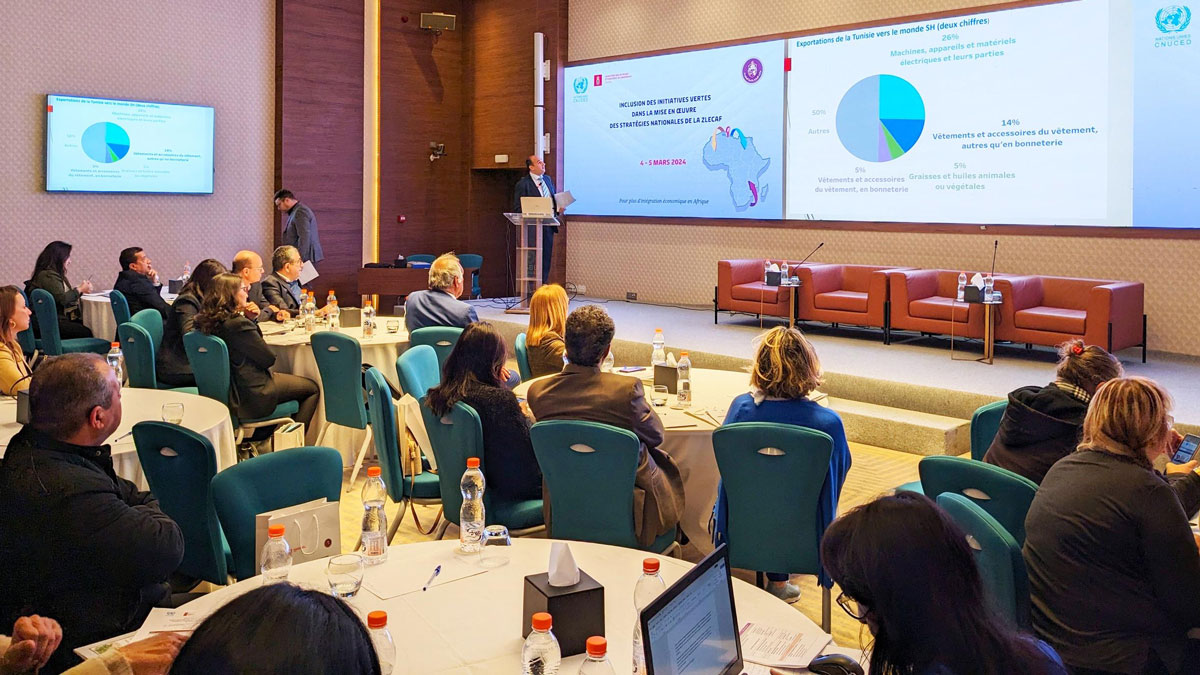Tunisia held its national workshop to review and validate national green value chain strategies aimed at promoting intra-African trade, sustainable production, and climate change adaptation. The event was held in Tunis on 4–5 March 2024. It gathered around 50 national stakeholders from the government, businesses, support institutions, and academia. Discussions aimed at refining a national strategy and action plan for two priority sectors selected by national stakeholders based on export potential to AfCFTA markets in North Africa and more broadly across the continent, and the need to advance development of these sectors, including by building their resilience to climate change. Stakeholders from the selected sectors, aromatic and medicinal plants and products (PAM), and ceramic products, identified key strategic priorities and a variety of national actions needed to meet agreed sectoral objectives.
Numerous issues were highlighted by national stakeholders. For PAM they focused on: Improving the transfer of best practices in PAM cultivation, resilience to climate change and value addition, including through new digital platforms; Advancing the use of national PAM certification schemes; Fostering collaborative research and economic ventures with West African PAM producers and consumers. For ceramic products issues focused on: Supporting AfCFTA efforts to liberalize services trade more broadly; Building competitiveness and broadening product offerings for export to African markets; Sourcing production inputs more actively from African suppliers; Pursuing negotiations for harmonization and mutual recognition of African regulations and standards of ceramic products; The use of digital certificates to streamline cross border trade.
The project for the inclusion of green initiatives into national AfCFTA implementation strategies is a joint initiative led by UNCTAD and UNECA, implemented in twenty countries from all five African sub-regions. It's aim is to assist beneficiary countries in the development of green value chain strategies to promote intra-African trade and climate resilience in the context of the AfCFTA.

